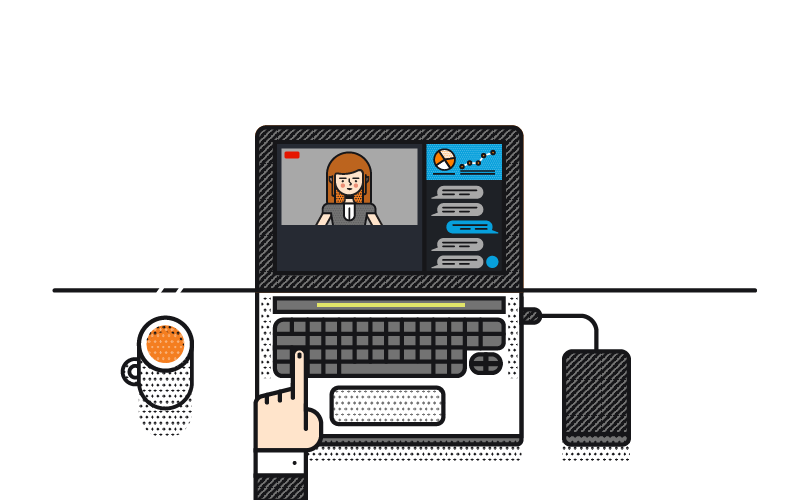What is event data?
Put simply – it’s loads of information about your delegates and how they behaved during the event. Across all industries and around the world there is currently a ‘data revolution’ taking place. Updates in tech are now allowing us to monitor the world around us in a whole range of new and fascinating ways. That means we can understand much more about people, what they like, what they don’t like, what makes them react, what makes them excited and what moves them to action.
For #EventProfs, this means you now have the opportunity to get in-depth insight into the world of your event and how it affected the people who attended. You can use this insight to understand where your event could be improved. It will take you far beyond the limited insight of traditional pre and post event surveys.
At Noodle Live we believe that a good event tech package should offer you several great options for tracking and measuring this data. We also believe that the data you end up with should be clear and easy to understand. We work with each individual #EventProf to get a good understanding of what they want to achieve and what a good outcome would look like. We then set up specific data-capture opportunities to help them measure their success and achieve their goals.
What can I do with all that lovely event data?
You can establish a range of ‘data touch points’ throughout your event. Each touch point will measure a different set of behaviours and help you to gather loads of useful information about what your delegates are getting up to.
Most importantly, you can use the data you gather to measure and report on the success of your event. You can measure how many people attended, how long they stayed, how many sessions they attended or exhibitors they engaged with, how many leads were generated or even how they felt about the event overall.
Could event data help me demonstrate ROI?
Yep! The data you capture during your events can help to measure the return on your investment. Post-event feedback forms are helpful, but data can give you real-time insight into how many people are engaging with your event, how active they are and what they’re enjoying the most. The event industry is only just beginning to understand the extraordinary power of good data and good metrics to prove success. As the technology improves, so will our ability to give feedback that is scientific and based on behaviour rather than personal comment.
What data can I collect?
The first data collection opportunity begins before your event has even started. Set up data capture points to monitor registration patterns and numbers. Look deeply into the data and you can find all sorts of fascinating insights. Do most people sign up on a Friday afternoon? If so, that’s the time you want to send a reminder email. Do people start signing up and then suddenly stop at a certain point in the form? Your application process may need streamlining.
Once delegates arrive at your event you can use data touch points to get an instant look at how many people have arrived, how many are left and how many haven’t shown up yet. All of this can easily be viewed from a personalised dashboard that shows you all of the information you need at a glance. The most common way to collect this data is to give people a personal entry badge or wristband with an embedded RFID or NFC chip. They simply need to swipe this card at data touch points around the event to register their presence. It’s as easy as that. Digital registration is also usually faster than traditional methods, which is great for your guests as well as for you! Delegates can often use the same tag for the cloakroom as they use to register, which means no more pesky coat tickets.
Inside the event delegates can quickly swipe their badge or wristband to register for sessions, so #EventProfs can quickly keep track of the most popular events and make rapid decisions about which events to promote or repeat if necessary.
Once your event is finished you can use your event tech to follow up quickly with a digital survey. Results can automatically be collated to look for trends and common themes.
Will my delegates mind giving away their data?
The reality is that most of us are giving away our data several times a day. Credit card companies monitor habits in spending, loyalty cards give companies information about shopping habits and even Transport for London are constantly monitoring our movements through our Oyster cards. But we all continue to use our cards day in day out. Why? Because they’re useful.
Good data touch points should always be a two-way street. Guests should never feel that they are being hassled for their data. If you want your guests to register their attendance or movements around your event, give them something in return. That could be faster check-in, easier cloakroom access or instant emails with additional information about sessions and speakers. Exhibitors can create special offers or discounts that are emailed out every time someone interacts with their data touch point. Exhibitors get contact details for potential leads whilst guests get great offers. Creating a data rich event should benefit both the organiser and the guests.





